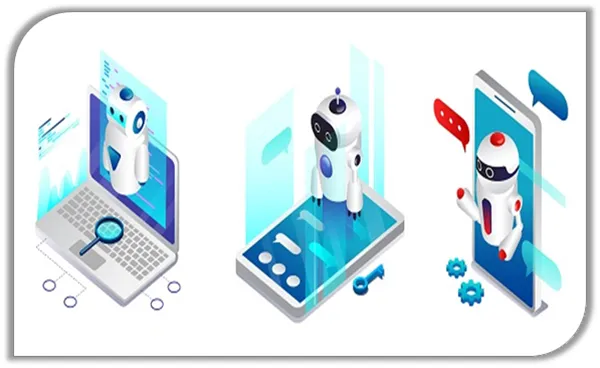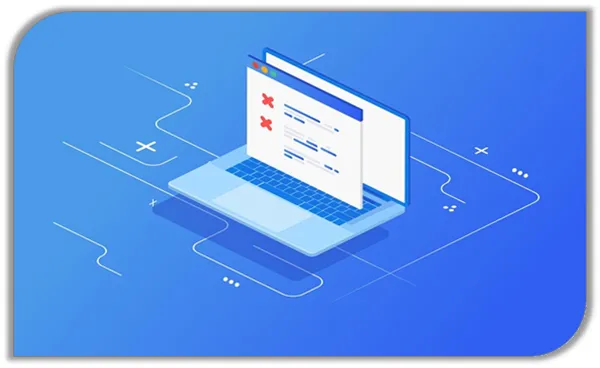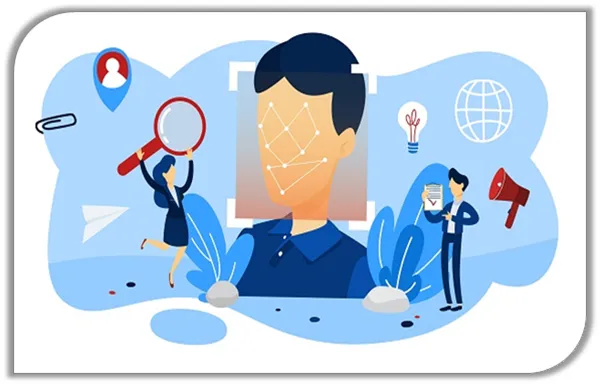
Menu

Menu

The evolution of Artificial Intelligence (AI) technologies is significantly impacting organizations globally. Once considered an option only for large companies, AI now provides valuable services for organizations of all sizes. While industrial applications like automated warehouses are common, support functions have been slower to adopt these changes.
Recently, the shift toward digital HR has gained traction as HR teams overcome initial doubts about new technologies. However, many organizations still struggle to capitalize on HR technology’s potential, partly due to growing expectations for personalized and engaging employee experiences.
To bridge this gap, organizations must invest in understanding AI capabilities that streamline HR processes and enhance employee engagement. Moreover, training HR professionals on these tools is crucial to fully leverage their benefits. Ultimately, embracing AI not only meets rising employee expectations but also positions organizations to thrive in a competitive landscape.
Here are some examples of where AI technology is impacting HR practices.
Chatbots are increasingly being used, for instance, to replace traditional Frequently Asked Questions (FAQs). In addition, they provide service center employees with more accurate information, enabling them to respond effectively to employee queries.

These chatbots are similar to the iPhone’s ‘Siri’ assistant, and they can be used to automate access to various services, such as booking leave, arranging meetings, or setting reminders. Furthermore, they can streamline interactions, thereby saving time and reducing the costs associated with routine administrative tasks.
Recruitment is an area where AI application significantly impacts brand image and the impression created on potential candidates. Rather than completing extensive form-based entries to apply for a role, AI enables candidates to experience the rapid and accurate transfer of information from resumes directly into smart forms. Additionally, AI can automate background checks or extract relevant information provided for further steps in the process, such as onboarding, without repeatedly entering the same information in different systems. Furthermore, in some organizations, rather than candidates applying for specific roles, open applications are accepted. In this case, AI is then used to match the candidate’s skills and experiences with current or planned positions in the company.

Using the ability to analyze and correlate data in depth, AI can automate personalized learning plans tailored to individual employees. This customization is based on various factors, including performance, experience, history, preferences, and future role needs. As a result, organizations can provide targeted development opportunities that enhance employee skills and align with their career aspirations. Moreover, this approach not only improves employee engagement but also ensures that the workforce is equipped with the necessary competencies to meet organizational goals.
AI systems are now available that utilize facial recognition technology to identify employees and visitors, thereby streamlining access to company facilities. Furthermore, this technology enhances the accuracy of time and attendance records, minimizing discrepancies and ensuring that data is reliable. Consequently, organizations can improve their security protocols while also simplifying administrative processes. In addition to these benefits, the integration of facial recognition systems fosters a more efficient workplace, allowing employees to focus on their core responsibilities without the distraction of traditional check-in methods.

Using a combination of AI and CCTV cameras, organizations can effectively monitor compliance with health and safety regulations. For example, these advanced systems can be trained to recognize the specific personal protective equipment (PPE) required for an employee across various scenarios. Moreover, the software can identify whether the employee is missing or misusing any item of PPE. As a result, it can send immediate alerts, allowing administrators to act swiftly to mitigate potential risks to employee health and safety. Consequently, this proactive approach not only enhances workplace safety but also fosters a culture of accountability and vigilance among employees.
The above are only a few examples of the impact of AI on HR. Importantly, there is no one-size-fits-all solution for all organizations; thus, management must collaborate closely with HR to identify suitable applications that will yield the most significant impact. Moreover, it is certain that new AI offerings will continue to be developed, reshaping our HR experience in the future. As technology evolves, organizations that embrace these innovations will likely enhance their operational efficiency and improve employee engagement. Consequently, fostering a culture of adaptability and openness to change will be essential for leveraging the full potential of AI in HR.
Organizations are increasingly utilizing AI to improve employee feedback mechanisms. By implementing AI-driven survey tools and sentiment analysis, companies can gain real-time insights into employee satisfaction and engagement. This allows for immediate action on areas of concern, fostering a culture of responsiveness. Moreover, these advanced systems can analyze feedback patterns over time, helping HR identify recurring issues and develop targeted strategies to enhance employee morale. Consequently, organizations can create a more supportive work environment that values employee input and drives continuous improvement.
Predictive analytics is another area where AI is making significant strides in HR practices. By analyzing historical data, organizations can forecast future workforce trends, such as turnover rates and recruitment needs. This capability enables HR teams to proactively address potential challenges, ensuring that they have the right talent in place to meet organizational goals. Furthermore, predictive analytics can help identify high-potential employees for leadership roles, thereby supporting succession planning. As a result, companies can optimize their talent management strategies, enhancing overall workforce stability and performance.
AI technologies are also playing a vital role in advancing diversity and inclusion initiatives within organizations. By leveraging AI tools, HR teams can analyze hiring patterns and employee demographics, identifying areas for improvement in diversity. Additionally, AI can assist in eliminating bias during the recruitment process by standardizing evaluations and focusing on skills and experiences rather than demographic factors. This approach not only fosters a more inclusive workplace but also enhances the organization’s overall reputation. Consequently, organizations that prioritize diversity through AI can benefit from a wider range of perspectives and innovative ideas.
AI is transforming the onboarding process, making it more efficient and engaging for new hires. Automated onboarding platforms can provide personalized experiences by guiding employees through essential training modules and resources tailored to their specific roles. Furthermore, AI-driven chatbots can assist new hires by answering common questions and providing immediate support. This streamlined approach not only reduces the time spent on administrative tasks but also enhances the overall onboarding experience. As a result, organizations can ensure that new employees feel welcomed and integrated, leading to higher retention rates.
Organizations are increasingly adopting AI to enhance employee wellness programs. By analyzing health data and employee feedback, AI systems can identify trends and recommend personalized wellness initiatives. For instance, organizations can offer tailored fitness programs or mental health resources based on individual needs. Moreover, these AI-driven solutions can track participation and engagement, allowing HR to measure the effectiveness of wellness initiatives. Consequently, fostering a culture of health and well-being not only boosts employee satisfaction but also enhances productivity and reduces absenteeism.
AI technologies are streamlining the analysis of compensation and benefits packages within organizations. By utilizing AI-driven analytics tools, HR teams can assess market trends and employee preferences, ensuring that their offerings remain competitive. Additionally, AI can help identify disparities in compensation and benefits across different demographics, enabling organizations to address potential inequities. This data-driven approach not only enhances employee satisfaction but also supports talent retention. Ultimately, optimizing compensation and benefits through AI can lead to a more engaged and motivated workforce.
AI is revolutionizing performance management systems by providing more accurate and continuous feedback. Traditional annual reviews often fail to capture an employee’s ongoing contributions and challenges. However, AI-driven tools can analyze performance data in real-time, offering insights into areas of strength and opportunities for improvement. Furthermore, these systems can facilitate more meaningful conversations between managers and employees by providing data-backed evaluations. Consequently, organizations can foster a culture of continuous feedback and development, ultimately enhancing employee performance and engagement.
AI technology is enabling organizations to develop customized employee recognition programs tailored to individual preferences and achievements. By analyzing employee performance data and feedback, AI can identify what types of recognition resonate most with each employee—whether it be public acknowledgment, monetary rewards, or professional development opportunities. Moreover, AI-driven platforms can automate the recognition process, ensuring timely and meaningful appreciation of employees’ efforts. As a result, these personalized recognition programs can significantly enhance employee motivation and loyalty, contributing to a positive workplace culture.
AI is also transforming career development within organizations by offering AI-powered career pathing tools. These tools analyze employees’ skills, experiences, and career aspirations to suggest potential advancement opportunities within the organization. Additionally, they can provide personalized learning and development recommendations to help employees acquire the necessary skills for their desired roles. By facilitating transparent career progression, organizations can enhance employee satisfaction and retention. Consequently, these AI-driven tools not only support individual growth but also align employee goals with organizational objectives.
AI technologies are increasingly being integrated into conflict resolution strategies within the workplace. By utilizing natural language processing and sentiment analysis, AI systems can assess employee communications to identify potential conflicts or areas of dissatisfaction. Moreover, these systems can provide HR professionals with insights and recommended actions to address issues before they escalate. By proactively managing conflicts, organizations can maintain a more harmonious work environment and improve overall employee morale. Consequently, this approach fosters collaboration and teamwork, ultimately contributing to a more productive workplace.
Additionally, AI-driven tools can help in creating a culture of open communication by encouraging employees to express their concerns without fear of repercussions. By analyzing anonymous feedback and sentiment trends, organizations can identify systemic issues and implement necessary changes, ultimately fostering an atmosphere of trust and support. Consequently, this approach not only improves overall employee morale but also enhances retention rates by demonstrating that the organization values its workforce’s well-being.
Contact us at HRBluSky today to learn how you can leverage AI to improve your HR offerings, reduce costs and speed up your processes.
Alignment
Article
Audit
Automation
Benefits
Candidate
Communication
Compliance
Digitalisation
Digital Technology
Diversity
Emirates Id Application
Employee Experience
ESS
Feedback
Health and Safety
HRMS
HR Strategy
HR System UAE
Human Resource Management
Human Resource Management Systems
Job Roles
Learning and Development
Onboarding
Outsource
Payroll
Payroll Management System
Payroll Processing
Performance
Performance Management
Personalisation
Recruit
Recruiting
Recruitment
Remote Working
Rewards
Security
Service Providers
Skills
Smart
Survey
Virtual
Visa Cancellation
Work Environment
Workforce
© 2026 Pruvity HR Solutions Pvt Ltd, Madurai, India